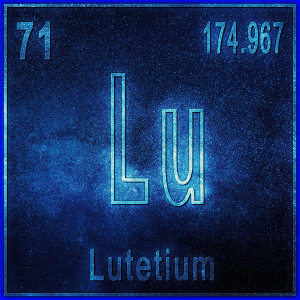by
John R. Fischer, Senior Reporter | March 28, 2022

FDA gives nod for Novartis' 177Lu-PSMA-617 for metastatic prostate cancer.
The FDA has given Novartis the green light to sell its long-studied drug, 177Lu-PSMA-617, a radiopharmaceutical therapy for metastatic castration-resistant prostate cancer (mCRPC).
Branded under the name, Pluvicto, the targeted radioligand therapy is designed to treat adult patients who have already undergone standard-of-care (SOC) treatments such as androgen receptor (AR) pathway inhibition and chemotherapy. It is a combination of a targeting compound or ligand with a radioactive particle that is delivered to the tumor tissue and emits a small amount of ionizing beta radiation. It does this at short distances to avoid hitting surrounding healthy tissue, while still inflicting damage on the cancer.
Prostate cancer is the second most common cancer in men, with more than 268,000 cases and approximately 34,500 deaths expected in 2022 in the U.S. While five-year survival for localized prostate cancer is close to 100%, for mCRPC patients it is only 30%.



Ad Statistics
Times Displayed: 367063
Times Visited: 7177 Quality remanufactured Certified Centrifuges at Great prices! Fully warranted and backed by a company you can trust! Call or click for a free quote today! www.Centrifugestore.com 800-457-7576
Compared to SOC alone, the treatment reduces the risk of death by 38%, as well as risk of radiographic disease progression or death significantly, says Novartis. “Today’s approval builds upon our history in prostate cancer, a devastating disease where we believe our innovation can make a meaningful difference to patients,” said Susanne Schaffert, president of Novartis Oncology, in a statement.
The company obtained the rights to the radioisotope from drugmaker Endocyte when it acquired the latter in 2018 for $2.1 billion. The treatment depends on PET scans to identify patients whose mCRPC expresses prostate specific membrane antigen (PSMA), which is an important phenotypic biomarker that is highly expressed in more than 80% of prostate cancer patients.
Following news of the approval, ITM Isotope Technologies Munich SE in Germany agreed to be a long-term supplier of the radioisotope, based on a previous agreement to supply Endocyte with n.c.a. 177Lu for its studies. “As a long-standing supplier of n.c.a. lutetium-177 for Pluvicto, we share in the excitement of this approval,” said Steffen Schuster, chief executive officer of ITM.
The risk reductions were calculated in the Phase III VISION trial, which showed improved survival in patients who underwent treatment with 177Lu as well as AR pathway inhibition and chemotherapy. Additionally, about a third of patients (30%) responded to Pluvicto and SOC, compared to 2% who underwent SOC alone. The FDA then granted Priority Review for 177Lu-PSMA-617 in September 2021
The findings and approval for 177Lu follow the progress of prior radiopharmaceutical therapies such as 177Lu-DOTATATE for patients with neuroendocrine tumors. SNMMI provides guidance and support to physicians and patients as 177Lu-PSMA-617 is distributed, and has updated its appropriate use criteria for PSMA PET imaging with an indication of “Evaluation of eligibility for patients being considered for PSMA-targeted radioligand therapy.” It also will provide resources to educate mCRPC patients about the therapy.
“The FDA approval of 177Lu-PSMA-617 is a testament to what nuclear medicine innovators, working closely with clinical colleagues in the prostate cancer care domains, can accomplish with their unique combination of expertise in basic biology, radiochemistry, physics, and instrumentation,” said SNMMI president Dr. Richard Wahl, FACNM, in a statement.
177Lu also has an extraordinarily high level of purity for cutting storage and logistics costs associated with handling contaminated waste, which allows for it to be used in areas that are governed by strict radiation protection rules and regulations.

